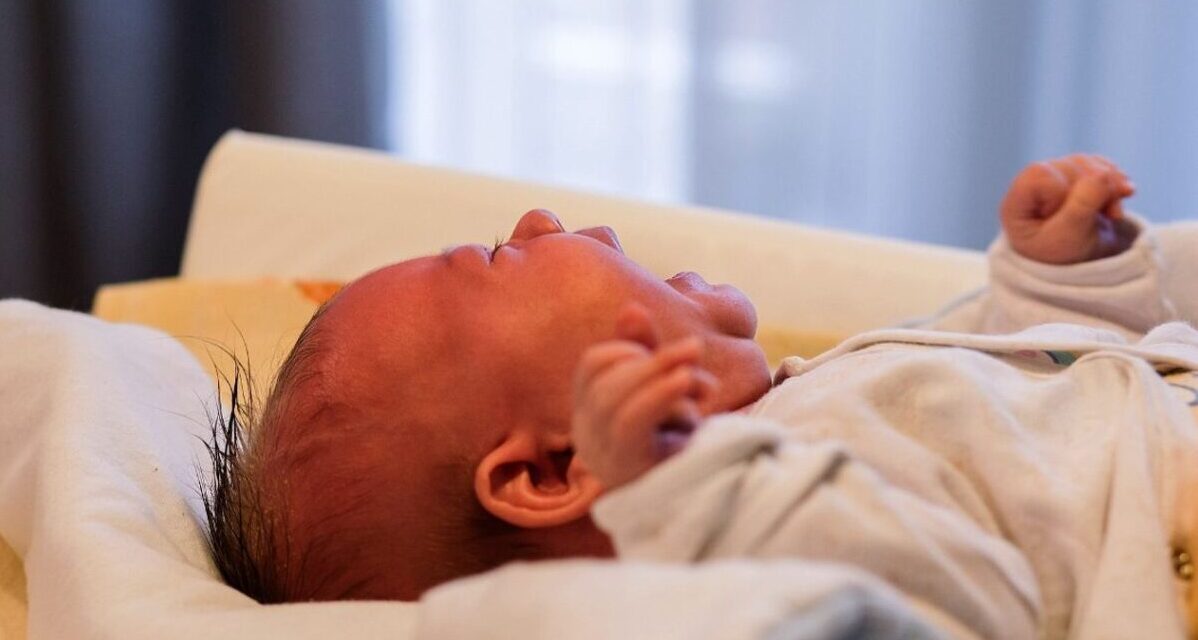The fate of babies left in hospitals is heartbreaking.
"October 7th is the World Day of Children Living in State Care, on the occasion of which we would like to draw attention. it provides an opportunity to highlight the challenges facing the adoption system and to emphasize society's responsibility to provide adequate support and opportunities for those affected. On this day every year, SOS Children's Villages try to emphasize the importance of foster care," said Gabriella Varró, SOS Children's Villages' communications expert.
Child protection services currently care for approximately 24,000 children in Hungary. Some of these children live with foster parents, while others are waiting in children's homes to find a host family. Educators and institutions are constantly working to provide them with security and love.
World Day of Children in State Care also reminds us of how important it is to create equal opportunities for children and to expand the opportunities inherent in care.
In the case of newborns and young children placed in state care, the law stipulates that
children under the age of 12 must be placed with foster families, not in a children's home.
Gabriella Varró emphasized that in reality this often cannot be achieved, as there is a serious shortage of foster parents. As a result, many babies stay in hospital for many months, being transferred from one ward to another because there are not enough foster parents to take them in.
From July 2024, a new law entered into force, according to which if a parent does not visit their child for six weeks, it is automatically considered a waiver and the child can be adopted. While this legislation may speed up the adoption process, it does not provide a solution for all babies stuck in hospitals.
Gabriella Varró emphasized that the parents visit approximately 80 percent of the children who remain in the hospital, but these families are unable to take care of their children due to financial difficulties, housing problems or other serious circumstances.
In addition to legislative changes, increasing the number of foster parents would be the real solution for the placement and proper care of these children, as well as prevention,
supporting mothers living in difficult circumstances and crisis pregnancies so that they do not lose their child.
In the case of babies placed in baby-saving incubators, the law automatically means that the parent has relinquished custody. "This clearly means that the adoption can start faster, since the biological parent is unknown, but even in this case you have to wait six weeks to see if the parent applies for it before the baby is declared adoptable," explained Gabriella Varró. So far, there have been no cases in Hungary of a parent or any family member returning for a baby left in an incubator.
There are currently around 300 abandoned newborns in hospitals in the country. This number was 50-100 last year, that is, it increased three to six times in one year. It's also heartbreaking because
for babies left alone in the hospital, the first months are a critical period, as this is the age when the foundations of bonding and emotional security would be formed.
However, babies who remain in a hospital setting for months or even a year often do not receive the care and stimulation they need.
"These babies often just lie silently in their slatted beds. At some point, they simply stop crying, because they learn that no matter how much they signal, no one comes, no one comforts them."
Hospital staff, as much as they want to help, are often overworked and babies are only admitted when their most basic needs are met - when they need to be fed, changed or bathed. “The hospital staff try to pay attention to them, but these babies become quieter and more passive. They get to the point where they don't cry, they don't ask, they just lie silently," continued Gabriella Varró.
This silent silence is especially heartbreaking, as crying is the only means of communication for babies to indicate that they are hungry, thirsty, or just want a hug.
"We met babies who just lay there silently for weeks and months. When they were finally placed in foster care, they had to learn to express their needs. This state of affairs is alarming, since a baby who does not cry has experienced that there is no point in asking for help," pointed out Gabriella Varró.
"One of our foster parents told me that in the hospital where she was with her own child, the baby she left there just cried and cried. In the end, the other mothers tried to calm her down, because the workers couldn't pay any more attention to her," said the communication specialist, who
these children often leave the hospital environment traumatized.
The phenomenon of "silent babies" deeply affects all foster parents and caregivers, as emotional neglect causes irreversible damage to children's psychological development in the long term. Due to the strain on the foster care system, many of these babies are left without care, which further highlights the urgency of addressing the situation.
Placement of adoptable children is often lengthy. "Although the adoption process can start for a newborn left in the hospital after the parents' absence for six weeks, this does not mean that the child will be placed with a family immediately.
Even until the administrative procedure is completed, it must be taken care of somewhere, the hospital is not the right place for that, not even for six weeks."
said Gabriella Varró. Those children living in state care, who are eventually adopted, live in child protection for months or even years beforehand, and it does not matter under what conditions they spend that time, in a larger institution, a so-called children's home or in a foster family, which is significantly more ideal. The slowness of the administrative procedure and the overloading of the system is also a factor that causes even adoptable children to spend more time in specialized care than they should.
Open adoption is a much faster process, as the parent gets in touch with the adoptive family before the birth and gives up the child in advance. Nevertheless, there is also a six-week period during which the parent can change his mind.
The country currently lacks more than two thousand foster parents, while the number of active foster parents is roughly five thousand to six hundred. In many cases, foster parents already have fully occupied places, which means that they cannot accept either an infant or an older child. Some families take in as many as four or five or more children, which results in significant overload, especially if there are children of their own in the family.
The foster care profession requires a serious commitment, but financial support often does not cover the costs involved.
"From 2024, the basic fee for a foster parent is HUF 80,040 per month, while the additional fee for children is HUF 53,360 per child. The allowance for children is HUF 64,150 per month, in the case of a child with special needs, this amount increases to HUF 74,850," explained Gabriella Varró.
The Day of Children Living in State Care is celebrated for the fourth year in Hungary on October 7. SOS Children's Villages introduced this day to draw attention to the importance of child protection and to introduce society to the role of foster care.
"We created this day because we found that the issue of child protection only came into focus when there was a tragedy - when a child was abused, when a child died or was sexually abused. Also, they didn't really talk about it," said the SOS Children's Villages communications specialist.
Every year, SOS Children's Villages tries to draw attention to the importance of foster care with information campaigns and social awareness campaigns. "Our goal is to show how foster families live and what foster care really is," added Gabriella.
The focus of this year's campaign is the fate of babies left in hospital, to which special attention is directed in connection with legislative changes.
The actions on October 7 aim to draw attention to the fact that foster care is the only sustainable solution for these children. SOS Children's Villages holds guerilla actions in ten locations in Budapest, including Nyugati Square, Széll Kálmán Square, in front of the Corvin Cinema, at Vígadó and Blaha Lujza Square.
"One of the most important outcomes of this day is to make visible a systemic problem,
which more and more people know about, and the media also deal with the issue of child protection more sensitively and intensively", concluded Gabriella Varró.
Cover image: The problem is really big when the baby stops crying
Source: Pixabay.com













